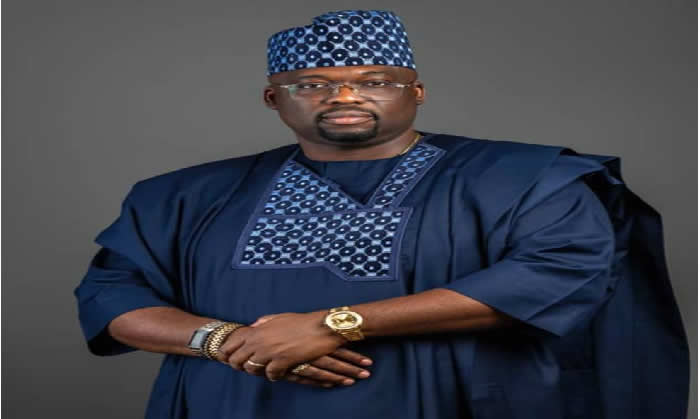Navigating the Turbulent Waters: Manufacturers Urged to Explore Alternative Financing Amidst Economic Challenges
The Nigerian manufacturing sector is facing a confluence of economic headwinds, forcing businesses to grapple with rising interest rates, inflationary pressures, and volatile foreign exchange rates. The Chairman of the Manufacturers Association of Nigeria (MAN) Ogun State Branch, George Onafowokan, has issued a clarion call to manufacturers across the nation to embrace alternative financing models as a means of survival and growth in this challenging environment. Speaking at the 40th Annual General Meeting of the Ogun State MAN Branch, Onafowokan emphasized the urgency of exploring new funding pathways beyond traditional bank loans, which have become increasingly unsustainable due to the prevailing high interest rates. The AGM, themed “Financing Manufacturing Concerns: Exploring Alternatives,” served as a platform to discuss and dissect the various financing options available to manufacturers.
The prevailing high interest rates, with the Monetary Policy Rate (MPR) standing at 27.5%, have rendered conventional bank loans a burdensome option for manufacturers. The exorbitant cost of borrowing significantly erodes profit margins, making it difficult for businesses to invest in expansion and innovation. Onafowokan highlighted several alternative financing options, including leasing, equity financing, green bonds, and support from development finance institutions like the Bank of Industry (BOI), the African Development Bank (AfDB), and the African Export-Import Bank (Afreximbank). Leasing, in particular, presents an attractive option for acquiring essential equipment without the immediate burden of outright purchase, especially given the high cost of foreign exchange.
The Nigerian manufacturing landscape is fraught with challenges. Soaring energy costs, coupled with the volatility of the foreign exchange market, have significantly impacted production costs. The weakening purchasing power of consumers, exacerbated by high inflation, has further dampened demand, leading to warehouses overflowing with unsold goods. The depreciation of the Naira against the US dollar has further compounded the woes of manufacturers, as the cost of imported raw materials and machinery has skyrocketed. Despite these daunting obstacles, Onafowokan commended the resilience of manufacturers in Ogun State, acknowledging their unwavering commitment to navigating these economic realities and striving for stability and growth.
The AGM featured presentations from key players in the financial sector, including the Bank of Industry, LECON Finance Company, and Agusto & Co. These presentations offered practical insights into the intricacies of alternative financing options. Onafowokan highlighted the Federal Government’s intervention initiatives, such as the N75 billion Manufacturing Sector Fund and the N75 billion Micro, Small, and Medium Enterprises Intervention Fund, both disbursed through the BOI at a concessional interest rate of 9% with flexible repayment periods ranging from one to five years. He urged manufacturers to capitalize on these opportunities to bolster their production capacity and enhance their competitiveness.
Government support and policy interventions are crucial for the survival and growth of the manufacturing sector. Adebola Sofela, the Ogun State Commissioner for Industry, Trade, and Investment, representing Governor Dapo Abiodun, reaffirmed the state government’s commitment to creating a conducive business environment through initiatives such as tax harmonization and infrastructure development. Francis Meshioye, the National President of MAN, called upon both the state and federal governments to prioritize local manufacturing through targeted policy support and procurement preferences. He advocated for policy-backed patronage of local industries and emphasized the need for consequences for non-compliance. Furthermore, he urged the Central Bank of Nigeria (CBN) to address the backlog of unpaid forex forwards owed to manufacturers, emphasizing that the continued delay was stifling production and hindering growth.
Meshioye also stressed the importance of fostering stronger collaboration between manufacturers and regulatory bodies. He called for the reinstatement of quarterly meetings between these stakeholders to address pressing issues and facilitate effective communication. He further highlighted the need for improvements in critical infrastructure, such as the rehabilitation of industrial roads in Agbara and Ota, vital industrial hubs in Ogun State. Addressing regulatory excesses was another key concern raised by Meshioye, who argued that overregulation could stifle productivity and discourage investment. He specifically mentioned the Financial Reporting Council, urging them to adopt a more balanced approach to regulation that fosters growth rather than hindering it. In a technical session, Oritsejimi Ogbobine, Associate Director at Agusto Consulting, advised manufacturers to explore the capital markets as a source of funding, leveraging debt and equity instruments, green financing, and international development finance. He emphasized the importance of transparency and a strong credit profile for attracting capital, noting that the financial market rewards companies with sound financial management practices. The 40th AGM of the Ogun State MAN branch served as a critical platform for stakeholders to reaffirm their commitment to strengthening the manufacturing ecosystem in Nigeria. The focus on alternative financing strategies reflects the sector’s determination to navigate the current economic challenges and build a more resilient and sustainable future.














